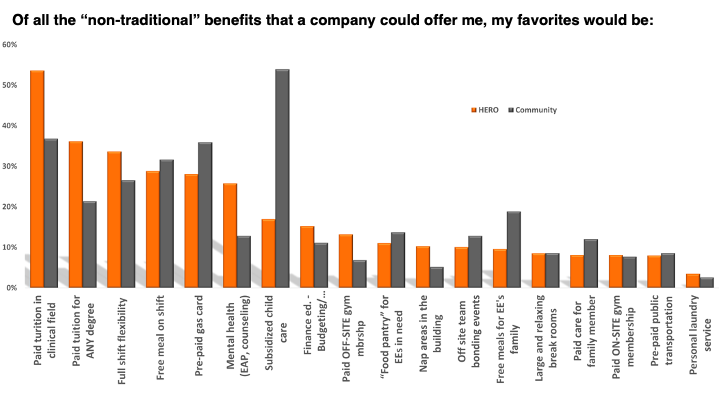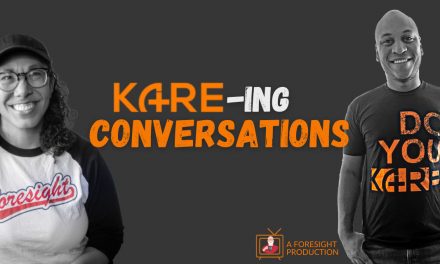By Susan Saldibar
Maybe the problem behind your staffing funk is that you’ve got it all wrong as to the benefits that your staff really wants.
Just how wrong?
You’re about to find out.
Charles Turner, with KARE (a Foresight partner), recently shared some information with our own Rachel Hill on KARE-ing Conversations that is raising eyebrows, including mine. (Watch the session here.)
First, you should know that …
When KARE surveys their base, you’re looking at thousands of people, not hundreds. They interview frontline caregivers as well as community management, so their surveys mean something. And it makes the disconnect between how both groups respond to the surveys even more amazing. (But more on that in a bit.)
In a nutshell:
The demographics
- 70% are single, most never married.
- Almost 80% have at least one dependent person in the home under 26 years of age.
- 10% are caring for a dependent adult.
Nothing really surprising, except it can’t be overstated that these are people with major responsibilities outside of what they’re doing for you.
Traditional Benefits
No major surprise here either. The top three most important traditional benefits are:
- Major medical insurance
- Dental insurance
- 401K with employee matching
BUT HANG ON; HERE’S WHERE IT GETS INTERESTING. …
KARE asked about nontraditional benefits. And we should thank them for that.
Because they’ve exposed some serious disconnects between …
- The benefits that community leaders think their employees want, and
- What employees really want
Sorry about this chart from hell, but you need to see this:

What stands out:
- Communities offer free meals and gas cards. Employees really want free college.
- Communities offer subsidized child care. Employees really want schedule flexibility.
- Communities offer off-site bonding events. Employees really want mental health support.
Looks like employees are screaming out for control over their lives in the form of:
- Tuition for higher education, and not just clinical
- Ability to carve out their hours to meet their unique needs
- Counseling and other mental health benefits to support their emotional health
Sounds to me like a lot of healthy, smart individuals out there are being paid peanuts and treated like commodities.
And we wonder why they leave. …
Huge props to KARE.
Because they went straight to the folks who are working inside your doors at this very moment. They listened. And they’re giving you a gift: a great opportunity to make your community better.
A good way to start is to share this KARE-ing Conversations episode with your employees. What do they want? Listen. Have the guts to make adjustments. Bake it into your budget, as Charles would say.
These people aren’t commodities. They are your future.
By the way, want to know what employees would take less pay to get from you in return?
It’s in the video. Check it out here.








